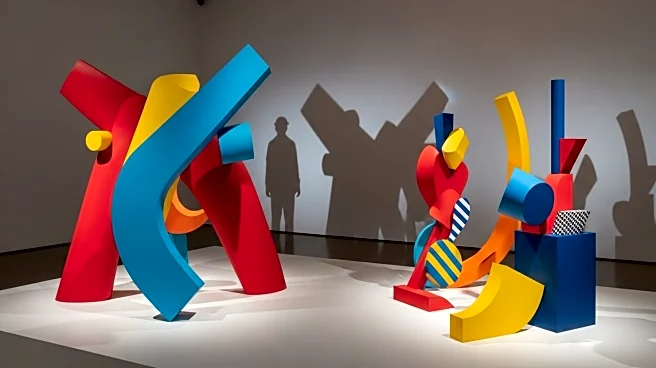What's Happening?
The Contemporary Istanbul fair, celebrating its 20th anniversary, has brought together 51 galleries from 16 countries at the Tersane Istanbul complex. Despite the socio-political climate in Turkey, marked by the arrest of Istanbul mayor Ekrem İmamoğlu and ongoing protests, the fair showcases a resilient art scene. Ali Güreli, the chairperson and founder of Contemporary Istanbul, emphasizes the need for Turkish art to remain 'radical and clever' in the face of increasing censorship and pressure on cultural institutions. The fair features works by leading Turkish artists and includes bold pieces addressing sensitive themes, such as LGBTQ+ issues, which risk censorship in Turkey.
Why It's Important?
The fair highlights the resilience of Turkey's art ecosystem amidst political and economic challenges. With inflation above 30%, the art market faces financial pressures, yet local artists continue to produce socially engaged work. The event underscores the importance of maintaining artistic freedom and expression in a climate of censorship. The presence of international galleries and collectors at the fair indicates a sustained interest in Turkish art, which could bolster the local art market and encourage cultural exchange. The fair's success may inspire other cultural institutions to persist despite socio-political obstacles.
What's Next?
Ali Güreli plans to expand the fair to include 70 galleries next year, with a focus on attracting Asian exhibitors. The opening of contemporary art galleries in Tersane Istanbul is anticipated, further strengthening the local art scene. As Turkey's art institutions continue to navigate political and economic challenges, their ability to adapt and thrive will be crucial. The fair's outcome may influence future cultural policies and the international perception of Turkey's art market.
Beyond the Headlines
The fair's emphasis on radical and clever art reflects broader cultural dynamics in Turkey, where artists often employ subtle approaches to critique socio-political issues. This resilience in the face of censorship highlights the role of art as a form of resistance and dialogue. The fair's success may encourage other sectors to adopt similar strategies in addressing political and economic challenges, fostering a culture of innovation and adaptability.











